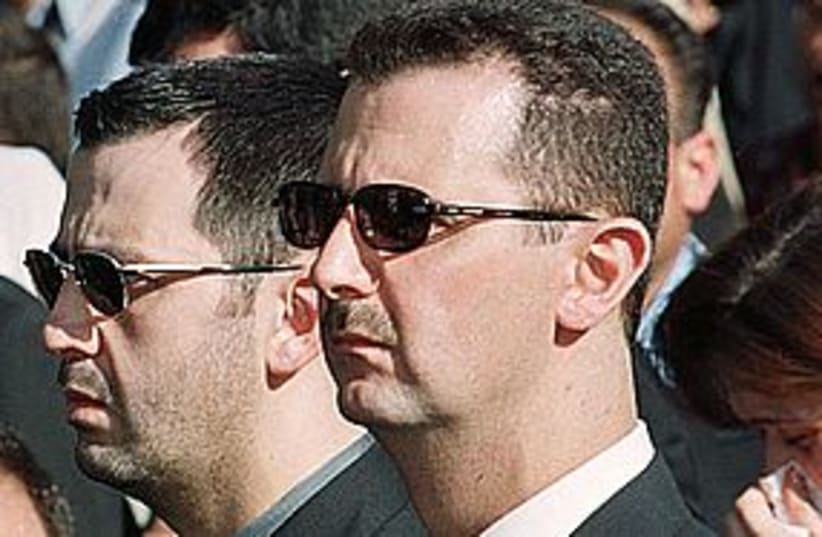"We have nothing to hide," he said outside the UN Security Council chambers, where members failed to agree on a statement condemning Syria's government."We regret what's going on, but you should also acknowledge the fact that this unrest and riots, in some of their aspects, have hidden agendas," he said, adding that some foreign governments were trying to destabilize Syria.Asked by reporters to name the countries that Damascus believes are behind the unrest, Ja'afari said it was "too early" to provide details.Ja'afari was speaking as Syrian President Bashar Assad poured troops into a suburb of the capital overnight while his tanks pounded Deraa to crush resistance in the southern city where the revolt against his autocratic rule began on March 18.White buses brought in hundreds of soldiers in full combat gear into the northern Damascus suburb of Douma, a witness told Reuters on Wednesday, from where pro-democracy protesters have tried to march into centre of the capital in the last two weeks but were met with bullets.Syrian human rights organization Sawasiah said security forces have killed at least 35 civilians since they entered Deraa at dawn on Monday.The organization, founded by jailed human rights lawyer Mohannad al-Hassani, said electricity, water and telecommunications remained cut in Deraa and tanks kept firing at residential buildings, with supplies blood at hospitals starting to run low.At least 400 civilians have been killed by security forces in their campaign to crush the protests, Sawasiah said, adding that the United Nations Security Council must convene to start proceedings against Syrian officials in the International Criminal Court and "rein in the security apparatus".The UN secretary-general has called for an independent inquiry into the deaths of people he has described as peaceful demonstrators.Ja'afari said Assad had instructed the government "to establish a national commission of inquiry and investigation about all the casualties among civilians.""We don't need help from anybody," he said.
'Assad's brother tops list of Syrians hit by US sanctions'
Report: US Treasury to release names of officials to be targeted by US sanctions; Germany announces support for EU sanctions on Syria; 453 reported dead in clashes between army and anti-government protesters.

"We have nothing to hide," he said outside the UN Security Council chambers, where members failed to agree on a statement condemning Syria's government."We regret what's going on, but you should also acknowledge the fact that this unrest and riots, in some of their aspects, have hidden agendas," he said, adding that some foreign governments were trying to destabilize Syria.Asked by reporters to name the countries that Damascus believes are behind the unrest, Ja'afari said it was "too early" to provide details.Ja'afari was speaking as Syrian President Bashar Assad poured troops into a suburb of the capital overnight while his tanks pounded Deraa to crush resistance in the southern city where the revolt against his autocratic rule began on March 18.White buses brought in hundreds of soldiers in full combat gear into the northern Damascus suburb of Douma, a witness told Reuters on Wednesday, from where pro-democracy protesters have tried to march into centre of the capital in the last two weeks but were met with bullets.Syrian human rights organization Sawasiah said security forces have killed at least 35 civilians since they entered Deraa at dawn on Monday.The organization, founded by jailed human rights lawyer Mohannad al-Hassani, said electricity, water and telecommunications remained cut in Deraa and tanks kept firing at residential buildings, with supplies blood at hospitals starting to run low.At least 400 civilians have been killed by security forces in their campaign to crush the protests, Sawasiah said, adding that the United Nations Security Council must convene to start proceedings against Syrian officials in the International Criminal Court and "rein in the security apparatus".The UN secretary-general has called for an independent inquiry into the deaths of people he has described as peaceful demonstrators.Ja'afari said Assad had instructed the government "to establish a national commission of inquiry and investigation about all the casualties among civilians.""We don't need help from anybody," he said.